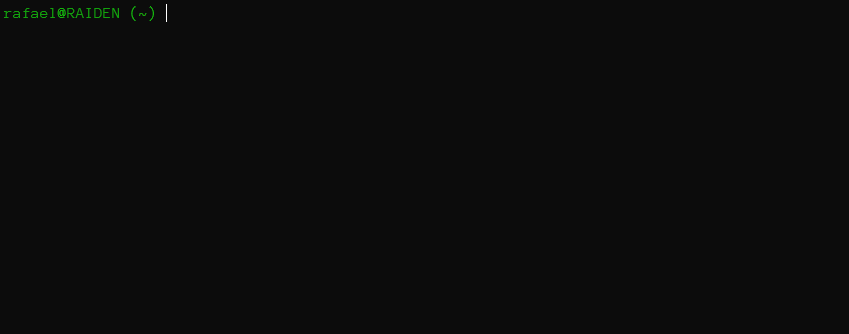This is a tool to set up Kali Linux with additional packages and maintain them over time. You can also use this script with other debian-based distros like Ubuntu.
$ update-kali -h
usage: update-kali [-h] [-n] [-s] [-r] [-p] [-g] [-f]
update-kali is a tool for rapidly configuring Kali linux with additional packages, git repositories
and other tools, and maintaining them over time.
optional arguments:
-h, --help show this help message and exit
-n, --noupdate Don't check for an updated script
-s, --noscripts Don't run scripts
-r, --noreposync Don't sync git repos
-p, --pip Update all installed python pip packages
-g, --gems Update all installed ruby gem packages
-f, --full Do all optional updates
I need to keep a group of Kali linux boxes up to date, and I like them to be setup in a similar format. This script installs the tools I'm likely to use, creates directories, etc. It's set up for my personal use, but with a little modification you can use it too:
- Fork the repo so that you can commit your changes to
config.py, and so the script updates from your account fork in future - Update
config.pywith your preferences - Go through
/scripts/, delete the ones you don't want, and add any of your own that you want to run. - Make sure you have the following installed:
python3,python-aptandgit. These are all installed by default on the standard kali.
If you set up Kali VMs frequently, such as for different engagements, skip to the end of this document and consider using this script with vagrant.
The default config can be found in config.py. You should updated it to match what you want, otherwise you'll use my preferences and calamity will ensue. This script will:
- Perform a general package update
- Install and remove specified apt packages
- Install specified python modules, golang tools and ruby gems
- Set up and remove specified directories
- Sync specified git repos to
~/, or a directory you nominate (private repos, such as dotfiles, notes, etc) - Sync specified git repos to
/opt, or a directory you nominate (public repos, such as wordlists) - Run all the scripts in
/scripts
Note: This script will change the ownership of your tools directory, which is /opt by default, to your user so that you aren't building with sudo privileges. Change the tools directory if you don't want that to happen.
The Go modules you install will most likely keep on getting worked on, but you'll only get the benefit of those once you update and recompile the associated repository. This can take a while, and introduces load, so Go modules will only be recompiled if the -G or --rebuildgo flags are used.
If you run the tool with -p or --pip, it will update all python pip modules for your user. Be aware that this may introduce breaking changes for your Python scripts that aren't in virtual environments.
As above, you can update all ruby gems with -g or --gems.
Lastly, this tool will run each of the .sh or .py files in the scripts directory. If you add a script to this directory, make sure they can be run multiple times without causing a problem. You can use the following script that installs Google Chrome as a template:
#!/bin/bash
set -Eeuo pipefail
trap "echo -e \"\033[1;31m[!] \e[0m Script error occured.\"" ERR
GREEN="\033[1;32m"
ENDCOLOR="\033[0m"
# === Exit without proceeding if run in WSL ===
if [ -f /mnt/c/Windows/System32/wsl.exe ]; then
exit 0
fi
# Check if Chrome is installed
if [ $(sudo dpkg-query -W -f='${Status}' google-chrome-stable 2>/dev/null | grep -c "ok installed") -eq 0 ]
then
echo -ne $GREEN"[+] "$ENDCOLOR; echo "Installing Google Chrome"
cd ~
wget https://dl.google.com/linux/direct/google-chrome-stable_current_amd64.deb
sudo dpkg -i google-chrome-stable_current_amd64.deb
rm -rf google-chrome-stable_current_amd64.deb
fiAnother way this script can be useful is in concern with Vagrant, which will allow you to create a fresh kali vm, configured as you want with a simple vagrant up. Fresh kali box for every engagement? No problem.
- Install vagrant
- Fork the repo so that you can commit your changes to
config.py, and so the script updates from your account fork in future - Update
config.pywith your preferences - Go through
/scripts/, delete the ones you don't want, and add any of your own that you want to run - Confirm that there aren't any changes you want to make to the
Vagrantfile - Run
vagrant up. Once the VM has finished provisioning and updating, you can ssh in usingvagrant sshor log in to Virtualbox/VMware with 'vagrant' as the username and password.
Does this mean vagrant is insecure? Mostly no. vagrant ssh uses key authentication, which is generated on provisioning. You do need to change the password though


